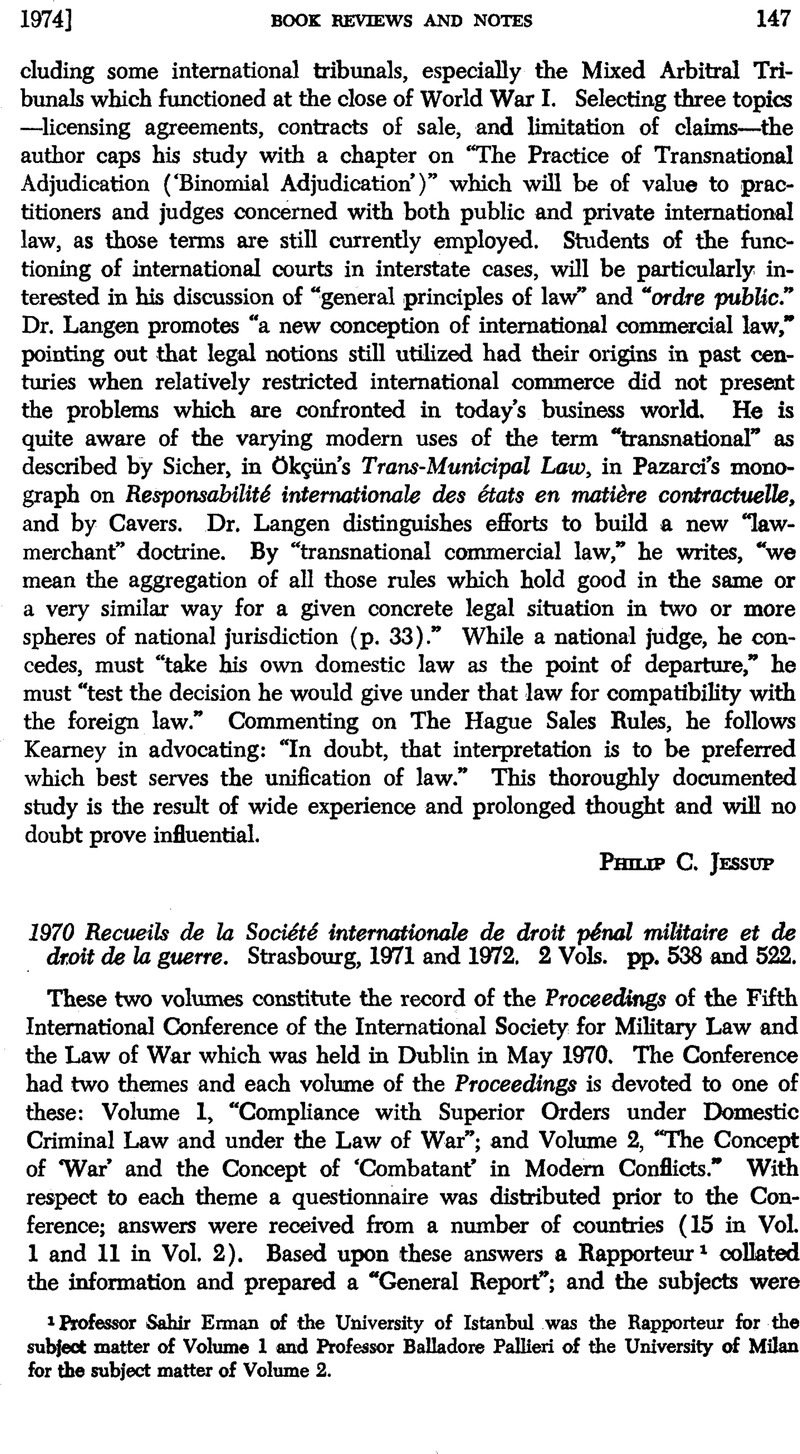No CrossRef data available.
Published online by Cambridge University Press: 28 March 2017

1 Professor Sahir Erman of the University of Istanbul was the Rapporteur for the subject matter of Volume 1 and Professor Balladore Pallieri of the University of Milan for the subject matter of Volume 2.
2 The approximately 200 participants who actually attended the Conference in Dublin came from 15 Western European countries, 4 Latin American countries, plus Australia, Canada, Israel, Japan, and the United States. In addition, there were observers from 7 international organizations, including the United Nations. Many of the participants were military officers or government officials but, presumably, they attended the Conference as private individuals.
3 Vol. 1, at 473–526; Vol. 2, at 406–75.
4 Professor Pallieri’s report in Volume 2 is presented more in the form of an original paper than of a summary and analysis.
5 Vol. 1, at 401–04.
6 Vol. 2, at 348.
7 Ibid., at 347–48. In his discussion of this problem Professor Balladore Pallieri quotes and takes issue with a statement made by Professor Farer in a paper submitted by the latter to the 1970 Brussels Conference on Humanitarian Law and Armed Conflict. He apparently overlooked Professor Farer’s caveat against quotation of that document.
8 It is unfortunate that none of the Socialist states appears to be represented in the Society. It would seem that the Society’s area of interest is one which particularly calls for an exchange of information from all legal systems.